SUMMARY
This is AI generated summarization, which may have errors. For context, always refer to the full article.

What do people need to watch out for when investigating troll operations?
Twelve Philippine senators recently filed a resolution, seeking an investigation into reports that public funds are being used for troll farms.
Senate Resolution 768 says Filipinos should know why the national government focuses on spending money on these operations rather than on pressing issues, such as COVID-19 assistance, healthcare, food security, jobs protection, and education.
The senators who signed the resolution are Senate President Vicente Sotto III, Senate President Pro Tempore Ralph Recto, Senate Minority Leader Franklin Drilon, and senators Francis Pangilinan, Nancy Binay, Leila de Lima, Richard Gordon, Risa Hontiveros, Panfilo Lacson, Manny Pacquiao, Grace Poe, and Joel Villanueva.
Troll farms, the spread of disinformation, and the weaponization of social media are not new to Filipinos. Social media was a key factor in Rodrigo Duterte’s victory in the 2016 presidential polls, and international experts have dubbed the Philippines as “patient zero” when it comes to digital disinformation.
The Philippines ranked first in the world for time spent using social media in 2021, according to We Are Social and Hootsuite’s annual report. This marks the sixth consecutive year the country received this ranking.
The senators said the rise in social media and internet usage paved the way for the propagation of internet trolls.
If senators will investigate these online operations that spread lies, hate, and disinformation, then here are some of the questions they should ask.
Who’s spreading these messages?
What better way to mobilize troll armies than by tapping influential figures or people in positions of power for wider reach?
One way the Duterte administration harnesses support for the President is by legitimizing vitriolic attacks on its critics in a bid to control online sentiment.
High-profile pro-Duterte propagandists, including Mocha Uson and RJ Nieto, were given government positions or were hired as consultants using public funds.
In 2020, Facebook also removed a network of accounts using false identities and which were found to have links to the Philippine military or police. With the anti-terror law, these accounts had been spreading lies and hate against perceived enemies of the State.
Celebrities have also been found to be spreading propaganda and fake news, lending legitimacy to questionable sites and fake networks.
However, beyond identifying the operators behind these networks, investigators need to ensure these people are held to account.
In 2019, Facebook took down a network of accounts that were engaged in inauthentic behavior, and this was traced to Nic Gabunada, Duterte’s social media manager in his 2016 presidential campaign. In June 2021, he was hired by the Department of Finance as a communications strategy consultant.
Who benefits from these operations?
The subject as well as the target of troll army operations can provide more leads on the people behind them.
The United States-based network analysis firm Graphika found that the pages involved in Gabunada’s fake network – unsurprisingly – spread pro-government content as well as conspiracy theories about political opponents.
In a separate report, Graphika found that a Chinese fake account network had a significant focus on Senator Imee Marcos. Rappler also previously reported on other fake networks supporting the Marcos family, and how widespread disinformation on the Marcoses has attempted to rewrite Philippine history.
Most recently, information crowdsourced by Rappler showed Facebook pages and groups as well as Twitter accounts with large followings were renamed to promote potential candidates for 2022. The reports show the practice benefits mostly allies of President Duterte, including his daughter Davao City Mayor Sara Duterte, Cabinet Secretary Karlo Nograles, and Taguig City 1st District Representative Alan Peter Cayetano.
Where are the trolls operating?
The top social media platforms in the Philippines are YouTube, Facebook, Instagram, Twitter, and TikTok. Any of these platforms can be a possible battleground for disinformation operations, especially as the 2022 elections approach.
Unclear policies on YouTube, the country’s most popular platform, have resulted in an abundance of false claims on the platform. Videos on Marcos gold claims as well as misleading videos by pro-Duterte vloggers are very common on YouTube.
Facebook’s third party fact-checking program does not stop misinformation and disinformation from spreading on its chat app, Messenger. Private messages and channels allow false posts to spread undetected by the platform. – Rappler.com
Add a comment
How does this make you feel?
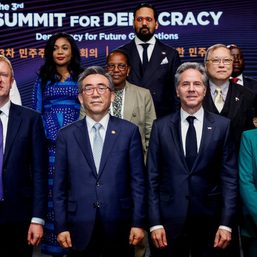
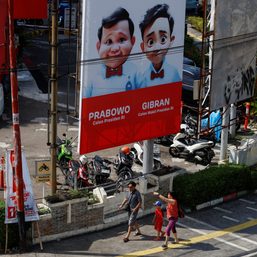
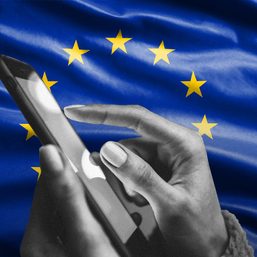
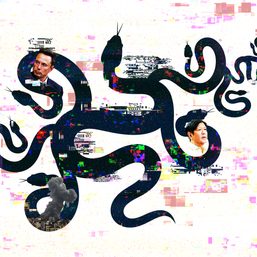
![[EDITORIAL] Threads, ang bagong designer drug sa ating public space](https://www.rappler.com/tachyon/2023/07/animated-threads-disinformation-accountability-carousel.jpg?resize=257%2C257&crop_strategy=attention)
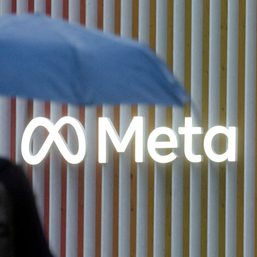

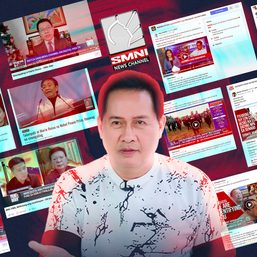
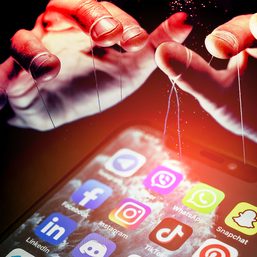
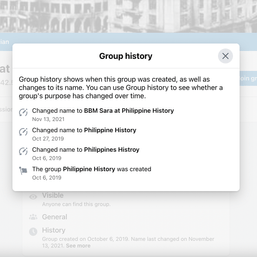
There are no comments yet. Add your comment to start the conversation.